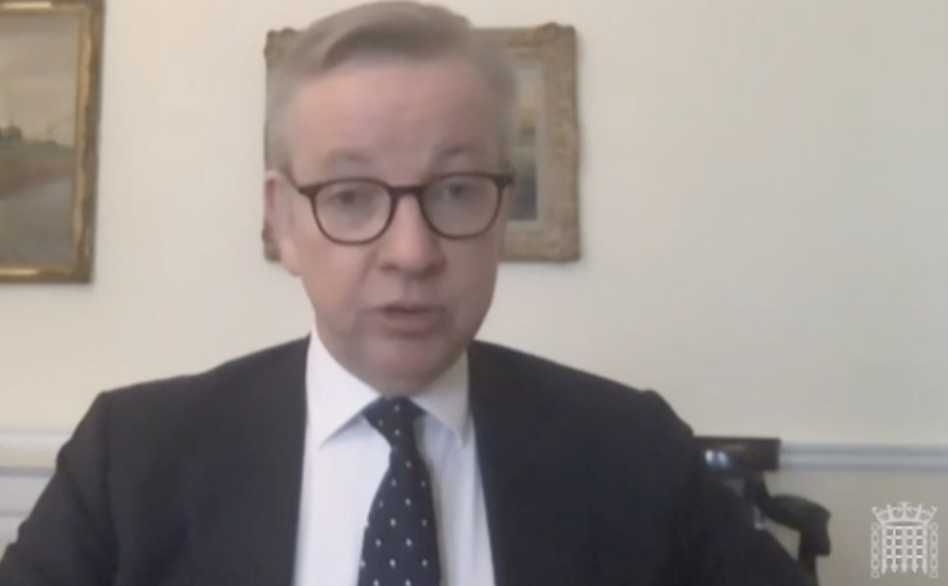Michael Gove rejects calls for Brexit deal delay because NHS would get less money

Michael Gove has said the UK will not extend its Brexit deal talks because it would mean less money going to the NHS.
Gove, the chancellor of the Duchy of Lancaster, insisted the government will not ask the EU to prolong the transition period despite its main focus being on the coronavirus crisis.
Appearing before the future relationship with the European Union committee on Monday, Gove, referring to the June extension deadline amid the pandemic, told MPs: “Things have changed [but] haven’t changed [regarding] the principle of remaining under the EU’s legal order.
“If we were to extend, it would involve us paying more money into the European Union at a time when that money could be spent on our National Health Service.”
The UK, after leaving the EU on 31 January, is currently in a transition period in which the two sides have until 31 December to agree their future relationship.

During the transition period, the UK effectively remains a member of the EU but with no decision-making powers. The transition period can be extended for up to two years, but Downing Street must give notice of this by 30 June.
Because of the coronavirus crisis, there have been calls for Number 10 to extend the transition period.
Latest coronavirus news, updates and advice
Live: Follow all the latest updates from the UK and around the world
Fact-checker: The number of COVID-19 cases in your local area
6 charts and maps that explain how COVID-19 is spreading
However, the government has repeatedly insisted it will not be seeking an extension.
Gove added: “It would involve us accepting not just the existing EU [regulations] but potentially new EU laws over which we would have no say, which could perpetually constrain this country [while being] shaped in the interests of the EU27 rather than the UK as well.
“Also, if we were to accept an extension, we would find the incentive to come to an agreement, that currently exists on all sides, would dissipate. We would find that once again, like any missed deadline, the new deadline would stretch for quite sometime.
“Again, the deadline having once been extended, the principle that one side or the other might wish to extend it further and further and further would exist as well.
Read more: 16 pictures that tell the story of five years of utter Brexit chaos
“I am not convinced an extension is the right answer.”
If a “future relationship” agreement is not reached with the EU, the UK will then trade with the EU on World Trade Organization (WTO) terms – the same as what a “no-deal” Brexit would have entailed.
Two more rounds of talks between the UK and EU are expected in the weeks beginning 11 May and 1 June, before a high-level meeting later in June to review the progress made.
Gove’s comments came after Michel Barnier, the EU’s chief negotiator, launched a blistering attack on the UK over its approach to the future relationship talks so far.
Barnier said at a press conference on Friday: “We cannot accept selective progress on a limited set of issues only. We need to find solutions on the most difficult topics.
“The UK cannot refuse to extend the transition period and at the same time slow down discussions on important areas.”
He said the UK “failed to engage substantially” on issues such as a future trade deal and that “we made no progress on fisheries”.
Barnier added: “We both want a close relationship here but we face problems – the UK refuses to provide firm guarantees rather than vague principles on fundamental rights and individual freedoms.”

 Yahoo News
Yahoo News 
